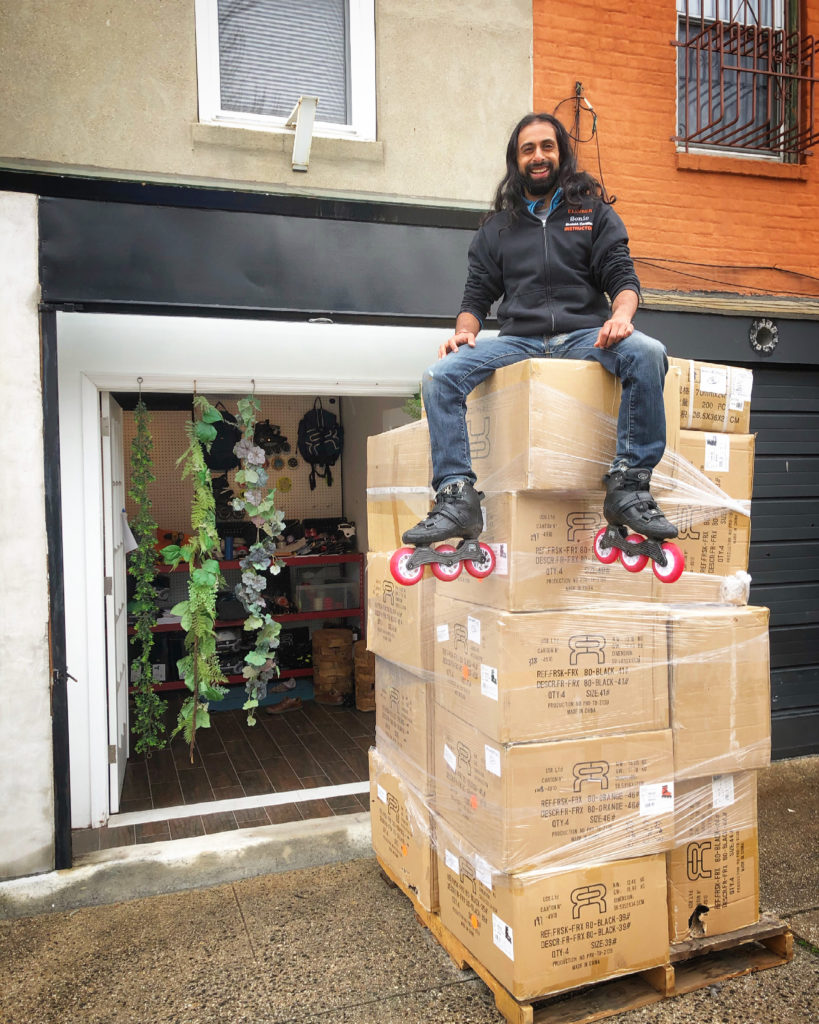
I’ve had many friends tell me that they enjoy following my story online of “living [my] best life”. It’s funny how what started off as just showing off cool stuff I was doing ended up creating inspiration for others. But there’s yet another reason for why I share what I share. Simply put, many people in our country, including South Asian Americans such as myself, don’t necessarily have the opportunity to live our best lives; and my being able to do so has meant a hell of a lot of subversion of the forces that hold so many of us down. I could probably write a book – and I probably will one day – on the story of how I worked around every obstacle to get to a high place. But today I just want to share a little bit about the circumstances that make my “best life” an even more astounding celebration.
Despite being born and raised in the US, there have been so many circumstances or pursuits where I felt I did not belong. There was some default culture, some way to act, and way one had to look; and my way of being did not line up with that.
There’s this notion that one must either segregate or assimilate. My parents fell into the former camp, telling me not to act like “those American people” (was I not American?). Meanwhile for the longest time I fell into the latter camp because most of the world I was surrounded by – and where the opportunities were – was filled with people who didn’t look like me (e.g. teachers, police officers, athletes, movie stars). So I felt I had to adopt a certain way of being in order to access these opportunities. But both segregation and assimilation are ill conceived as each assumes that one class is better than another. The true way forward is to have access to opportunities without having to either live a double life or give up parts of one’s being.
The model minority myth that we (South Asians East Asians, West Africans, etc.) are subjected to is at its core a damn fucked up deal. In essence, the powers that be offer us some semblance of a successful and stable life as worker bees in the white collar world (e.g. tech, banking, healthcare, academia). But in return we accept artificial boundaries and give up any notion of visibility: we must remain quiet, complicit across the board (and putting down other minorities), and we rarely make it to the top or positions of power.
The exception that proves the rule is if a “minority” grew up as part of the dominant class, such as Indian born Hindus (e.g. CEOs Satya Nadella of Microsoft and Sundar Pichai of Google). But it’s worth noting that these “dominant class” CEOs still get the typical minority treatment when it comes to media coverage.
Most of the early successes in my life were a result of the twin powers of embracing model minority stereotypes and assimilation. I was good at math and computers and known to be a hard worker. And friends told me that I was “very well spoken”, that I was “the least Indian Indian”, that they “did not see me as a person of color”, and that I apparently “acted very white”. It’s hard to unravel how much of my transformation was intentional vs subconscious, but either way, it seemed the best way forward to live a potential best life. And of course it came at the cost of hiding away who I really was.
However, later successes were hard to come by. It was as if I was suddenly running into walls and limitations. The professional working world didn’t like individuals that wanted to be, well, individuals, as opposed to cogs in a machine. And the athletics world wasn’t keen on having a small and skinny, brown dude, no matter how proficient and capable I was. All this was the other half of the devil’s deal. In a nutshell, the powers that be wanted our labor, but not our lives.
Imperialism and the exploitative capitalism that fuel it are at the heart of why people like myself are in this situation. The imperialists for centuries fucked up places liked India, making that world barren of opportunities and forcing people like my parents to come out to America for a better life (while also signing the model minority bad deal). I am here because the imperialists were there.
So who are these “powers that be”? Well it’s a system that resides in all of us, stronger in some over others. Some call it white supremacy, though I believe that’s a misleading term because although most of the beneficiaries of the system are white (or acting white), white supremacy not only screws over brown and black people, but it also screws over most white people. The powers that be tell us to fight amongst ourselves while the primary beneficiaries – who are generally elite and rich – continue to exploit the rest of us. And while it’s likely that many of them are unaware that they’re perpetuating a revolting system, the rest of us are just as unaware that we are too.
I present this all as food for thought. To take a moment to reflect and introspect. That no matter what you are – brown, black, white, rich, poor, born here, immigrant – we’re furthering something that keeps ourselves and others from living our best lives. And how we can at least start to be aware of our role in order to break that cycle.
As for the story of how I squirreled my way as best I can to subvert this damned system in all manners possible – it’s a story involving unconventional action, plenty of personal risk, and a whole lot of privilege. But that’s a story for another day.